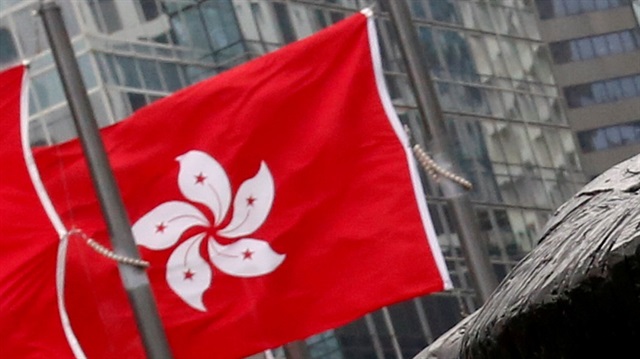
The Basic Law requires the city to create laws against treason, secession and subversion of the national government, effectively updating those from the colonial era.
The laws from British rule, while broad, do not outlaw calls for independence or self-determination.
Previous attempts to draft a harsher new national security law, known as Article 23, were met with mass protests and abandoned. Chief Executive Carrie Lam, who took office last year, has not yet proposed a new version, a reflection in part of lingering public concern.
But many observers say the government is using the Security Wing to tighten its grip even without Article 23.
The wing's officers were deeply involved in producing the 700-page dossier the government used to justify banning the National Party. The document tracked its statements, public appearances and activities.
For some, that has echoes of the colonial-era Special Branch, which monitored potentially subversive Chinese and Russian communist activity across Hong Kong during the Cold War. The agency was disbanded in 1995, two years before Britain handed Hong Kong back to China.
"It is clear it (Security Wing) is doing much more political work now," said James To, a veteran democracy advocate who has spent much of his 27 years in the city's parliament scrutinizing the government's security policies.
"My worry is that when you monitor people's political life and thoughts you are going against the spirit of the human rights provisions of the Basic Law. There is a need for balance," To said.
To said the government had repeatedly refused requests by Hong Kong's legislators to discuss the Security Wing's operations in detail.
Headed by an assistant commissioner, the Wing has over 700 staff, according to government information provided to lawmakers in recent years, some of whom have close ties with mainland Chinese counterparts as well as foreign diplomats based in Hong Kong.
One former senior officer familiar with the branch's work said he was witnessing a sea change in the government's previously hands-off approach.
"It is back to the future," he said. "It is eerie to see them embark on the same kind of monitoring and control operations that we used to do with an entirely new generation."
Police declined to comment on whether other activists or groups, including those calling for greater autonomy in the longer term such as Joshua Wong, were being targeted, saying the department wouldn't "disclose details of operations and investigations."
Some observers see an expanding clampdown as inevitable given the political climate.
"They (the police) are clear what China's thinking is on this issue," said a senior police source, who declined to be named given the sensitivity of the issue.



